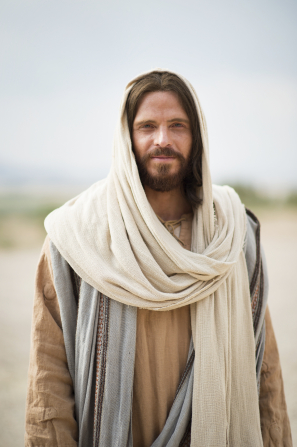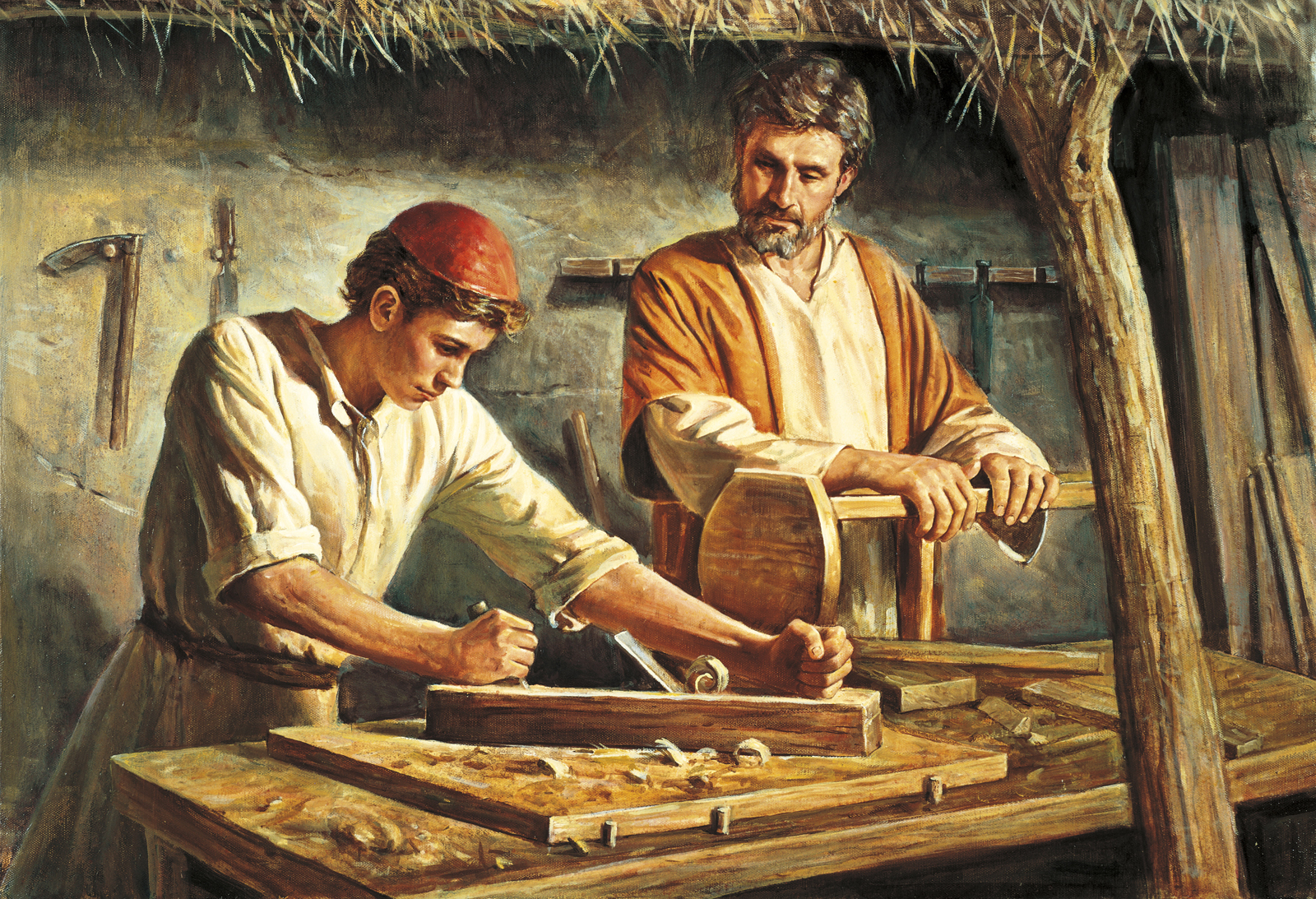This is the talk that I gave in church on Sunday, November 22, 2020.
Good afternoon, to those I can see in person, as well as to the many people participating by Zoom. I’m grateful for your attendance. By way of introduction, as announced, I’m Krista Rich. My husband, Joseph, and I have been in the ward since July, and our baby boy, James, was born in August. We're excited to be here for 5 years while Joseph gets his PhD in biomedical engineering at Duke. I graduated in 2019 with my master’s from BYU in teaching ESL.
This week, we celebrate Thanksgiving. So I wasn’t surprised to find out that my topic for this talk would be “living in thanksgiving daily.” But imagine my good luck when President Nelson, the prophet, centered his special video message on Friday around gratitude. I will refer to his remarks throughout my talk and encourage you to watch or re-watch the message on your own.
President Nelson, as a man of science and a man of faith, testified of the healing power of gratitude. He listed some specific things we may thank God for—our lives, our mind, our bodies; art, literature, music; repentance; families, friends; the opportunity to cherish and serve one another; even our trials in life; and many more.
When I received the invitation to speak a couple of weeks ago, I set a reminder in my phone to go off at noon every day to “live in thanksgiving daily.” Each day when my timer went off, I said a small prayer of gratitude. I thanked God for many of the things that President Nelson mentioned in his message, and I also thanked Him for many other blessings in my life.
My husband is a great example of gratitude. This last week, independent of my preparing for this talk, he told me he wanted to be more grateful toward me. He asked for my help. So I secretly put a reminder in his phone to go off every day at noon. The reminder says, “Why are you grateful for Krista today?” I did not put an end date on this reminder.
Gratitude—both to God and to others around us—is not only a wonderful way to become more like Christ, it’s also a commandment. 1 Thessalonians 5:18 says, “In every thing give thanks: for this is the will of God in Christ Jesus concerning you.” Doctrine & Covenants 46:32 says, “And ye must give thanks unto God in the Spirit for whatsoever blessing ye are blessed with.”
I testify that we are blessed when we feel and express gratitude. After all, as we learn in the Doctrine & Covenants, “When we obtain any blessing from God, it is by obedience to that law upon which it is predicated” (D&C 130:21). Thus, when we obey the commandment of gratitude, our Father in Heaven blesses us more in return. However, I would suggest that taking our actions one step further will take the healing power of gratitude one step further. As human beings, we are more likely to remember things when we write them down.
Three months into our marriage (we've been married for about two and a half years), Joseph and I started a nightly tradition of writing on our posters. Each night, I write 1 thing that I love about Joseph or that I am grateful to him for, and he does the same about me. Some entries are practical—“Joseph fixed our wheel fender”— some are celebratory—“I am so proud of Joseph for graduating!”—some are painfully honest—“Joseph loves me even when I’m stubborn”—some are humorous—“Joseph kills the spiders”—and some just say it all—“I am grateful for all our moments.”
Since we began this tradition, together, we have filled both sides of a number of pieces of colored cardstock. Several weeks ago, I was feeling a bit annoyed with Joseph; as might be expected, I don’t even remember why now, though I’m sure it had more to do with my pride than with anything he actually did. I saw my current poster—this one, yellow—sitting on my nightstand and picked it up, still annoyed. But on that yellow piece of paper, there were three months’ worth of little things that I loved and appreciated about Joseph. It didn’t take long for the healing power of gratitude to take over, and my heart softened. I experienced what President Nelson described as “a fast-acting and long-lasting spiritual prescription” that “soothe[d my] feelings.”
In his message, President Nelson also extended the challenge to use social media as our own personal gratitude journals for the next 7 days. Although I’ve been largely inactive on social media over the last few weeks, I chose to accept his challenge. Each day, we’re invited to post about someone or something that we are grateful for. I love President Nelson’s invitation to “see if you feel happier and more at peace” after this week of gratitude.
I have a testimony, based on my own experience, that writing down our blessings does indeed bring happiness and peace—not only in the moment we are writing, but in later moments when we revisit these records.
Additionally, President Nelson invited us to thank God in our daily prayers. He set a beautiful example in his own prayer of gratitude in the video.
Still, sometimes in our lives, we can’t help but notice when some blessings seem to be missing. Where does daily thanksgiving come into play in those instances? I’d like to share an analogy related to this.
Recently, I was working on a 520-piece puzzle. There was one piece that I noticed I hadn’t come across yet; I took particular notice of it because it was an edge piece with text on it, and it would have completed a section of the puzzle. But I wasn’t too concerned because I had maybe a quarter of the puzzle left to complete.
But before I knew it, I had put together 519 puzzle pieces. I was still missing that last piece. Through no fault of my own, it wasn’t there. It simply hadn’t been included in the box. Although the one piece didn’t much affect the way the puzzle looked, it certainly affected the way I looked at the puzzle. The fact that it was incomplete despite my efforts made the puzzle seem a little less beautiful.
This experience got me thinking. Those puzzle pieces are, in a way, like the blessings in our daily lives. Individually, each piece may not be significant, but they all work together to create something beautiful. How often do we spend so much time searching for the one proverbial piece that’s missing that we forget, underappreciate, or even disregard the 519 pieces?
There have been opportunities in my life that I have prayed for but not received. Often, in the midst of these times, I questioned why I couldn’t have my way. Often, I didn’t find out why until much later. And always, the reason was that Heavenly Father had something better planned for me.
Though not scripture, the chorus of a song I like comes to mind: “Sometimes I thank God for unanswered prayers. Remember when you’re talking to the Man upstairs that just because He doesn’t answer doesn’t mean He don’t care ‘cause some of God’s greatest gifts are unanswered prayers.”
I won’t pretend that it’s easy to be grateful for the blessings we so desire and don’t receive right away. It may be especially hard when you once had the very blessing you crave, but it was, for one reason or another, taken away. But I affirm that when we take a step back and are willing to wait a little longer for the missing piece, it’ll be easier to appreciate the beautiful blessings that are before us right here, right now.
I invite you to think of some of the blessings that impact your daily life as I list some of my own. You’ll notice that, while I’ll list them in no particular order, some are seemingly large blessings, while some are seemingly simple.
First, I am grateful for the gift of repentance. Daily, I make mistakes. Daily, I repent.
Second, I am grateful for my home. It protects our family from the outside elements and provides a safe and inviting place for me.
I am grateful for my parents who raised me, my brothers who (I have no doubt) will always have my back, my in-laws who helped shape my husband into the man I know and love.
I’m grateful for water. Yes—water. It quenches my thirst, it cleanses my body, and it makes for a relaxing natural soundtrack on a rainy day.
I’m grateful for good books, the Internet, Christmas music (yes, I said it). I’m grateful for the bed I sleep on, the couch I sit on, and the table I eat at.
I’m grateful for the friends I’ve had over the years, for my past language students, for the gift of tithing.
I’m grateful for the tough lessons I've learned. I’m grateful I got cut from high school volleyball tryouts because it led me to tennis.
I’m grateful for the mail service, the trash and recycling service, and the turtles that live in the pond in our neighborhood.
I’m grateful for my baby’s ten little fingers that hold onto mine—and sometimes pull my hair. Hard. I’m grateful for his gummy smiles and his developing little voice.
I’m grateful for my angel husband. He truly is an angel to me. He is my knight in shining armor and my eternal companion.
I am grateful for my elder brother, Jesus Christ, who I know is my Redeemer, my Advocate with the Father, my Savior.
I am grateful for my Heavenly Father and my Heavenly Mother.
Jesus provided a way for 10 lepers to be healed of their disease. “And one of them, when he saw that he was healed, turned back, and with a loud voice glorified God, and fell down on his face at his feet, giving him thanks… And Jesus answering said, Were there not ten cleansed? but where are the nine?” (Luke 17:11–19)
I never want a day to go by that I fail to thank my Heavenly Father for all that He blesses my life with. I hope I live my life in a way that I will never be among the nine after whom Jesus inquires. Rather, I hope to model my attitude after the one who returned.
Elder David Haight said, “It’s so easy in life for us to receive blessings, many of them almost uncounted, and have things happen in our lives that can help change our lives, improve our lives, and bring the Spirit into our lives. But we sometimes take them for granted. How grateful we should be for the blessings that the gospel of Jesus Christ brings into our hearts and souls… if we’re ever going to show gratitude properly to our Heavenly Father, we should do it with all of our heart, might, mind, and strength—because it was He who gave us life and breath.”
I testify that as we live in thanksgiving daily, our lives will be happier, we will feel greater peace, we will draw closer to God and Jesus Christ, and we will develop a keener eye for blessings we may have previously overlooked or taken for granted. I testify that Jesus Christ is our Savior and that He loves us and knows us individually.
In the name of Jesus Christ, amen.



